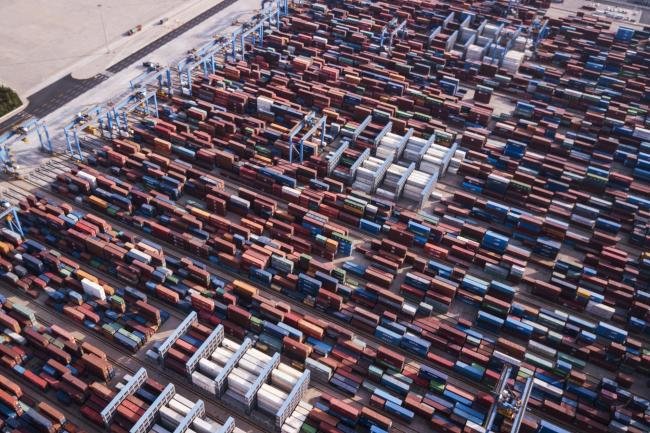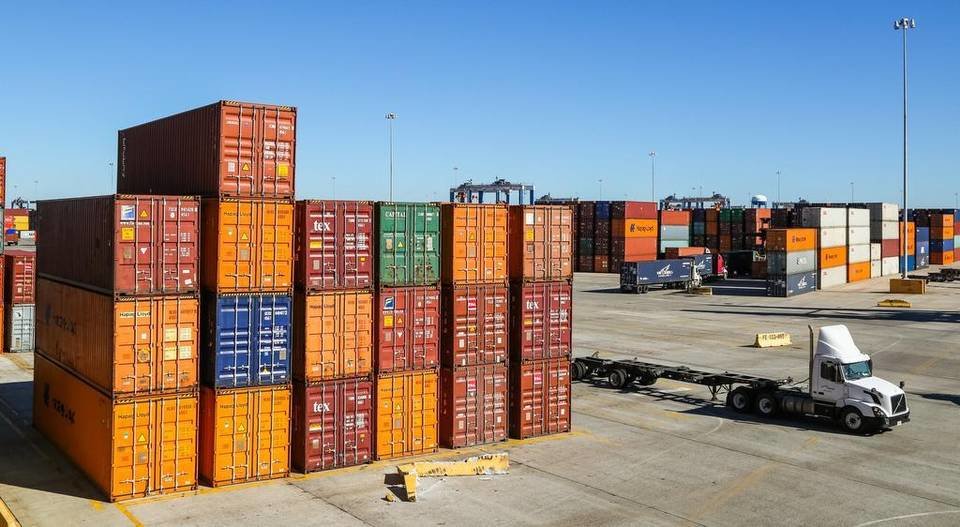When U.S. President Donald Trump first introduced tariff on appliances imported from China, Whirlpool CEO Marc Bitzer, commended the move – but now as U.S.-China trade war heats up, his company is starting to feel the burn.
Tariffs on Steel and Aluminum

In January, President Trump introduced tariffs on appliances imported from China and later extended the price increase to steel and aluminum import as well
The same import tariffs that Bitzer had once been in favor of, are coming back to bite him now. In January, President Trump introduced tariffs on appliances imported from China. But he didn’t stop there. A few months later, his government extended the price increase to steel and aluminum import as well – a move that hurt a lot of companies including Whirlpool.
Steel and aluminum tariffs are currently 60 per cent higher than global averages and those who had sung praises for Trump’s trade policies are now backtracking on their words. Whirlpool is one of the companies affected by the hike in steel prices. Just last week, it released a dismal earnings report for the second quarter of 2018. Shares closed at $128.82 for the day – a shocking decrease in value by 31 per cent over the past 12 months and 22.9 per cent in 2018.
The decrease in growth is attributed to rising cost of raw material. This year alone, Whirlpool will have to pay an additional $350 million for buying steel and plastic resins as well paying for transportation of the raw material.
Of all the companies in the appliance sector, Whirlpool has been affected the most by softening revenue and surging raw material costs. The company reported 0% growth in its year-over-year net sales in North America. Demand for home appliances is expected to drop even further as prices rise.
High Fuel Costs And Counter-Tariffs
On July 24, Whirlpool’s five-year CDS debt rose by 15 per cent as the company’s bids fells from 95 bps to 83 bps. According to Markit, its readings haven’t exceeded 100 bps since 2016’s first quarter, but they fell sharply after January when Trump announced import tariffs against specific products in the home appliance industry. The year-to-year raw material cost increase has also soared to $350 million, owed partly to limited availability of freight carriers and high fuel costs.
Despite a dip in earnings for the second quarter, Whirlpool is hopeful that the recent tax reforms will counterbalance the impact of tariffs by increasing consumer demand and boosting corporate competitiveness. The current trade restrictions affect Whirlpool’s ability to import raw material for manufacturing as well as exporting appliances to other countries like China which have imposed counter-tariffs on U.S. made products.
CEO Marc Bitzer says that his company is affected by a number of elements in the macro environment including declining demand in the U.S. market and increasing raw material costs. The costs are in direct relation to the U.S. import tariffs on steel and aluminum. But other factors like the current trucker strike in Brazil tightening freight supply and currency fluctuations in Latin America also play a role in the macro headwind.

Only 1 in 4 corporations have agile supply chains which helps them adapt to market shifts and maintain price, quality and customer service despite uncertainty in demand and supply.
Impact on Supply Chains
High tariffs cause major disruption in the global supply chain. As Trump plans to introduce tariffs and duties on Chinese goods worth $216 billion, Whirlpool will not be the only company with disappointing earnings releases.
Currently, the fragile port infrastructure poses more threat to businesses that any other natural disaster. But supply chain companies are buffering imports due to uncertain trade environment which has led to 8.4 per cent rise in imports on Los Angeles and Long Beach ports. Most of the import volume at California’s ports is in direct relations with U.S.-China trade conflict. Not only will this affect the costs of freight but also cause late deliveries and disruption in supply chain.
One of the toughest challenges most companies face today is agility in their supply chains. A research shows that only 1 in 4 corporations have agile supply chains which helps them adapt to market shifts and maintain price, quality and customer service despite uncertainty in demand and supply.










